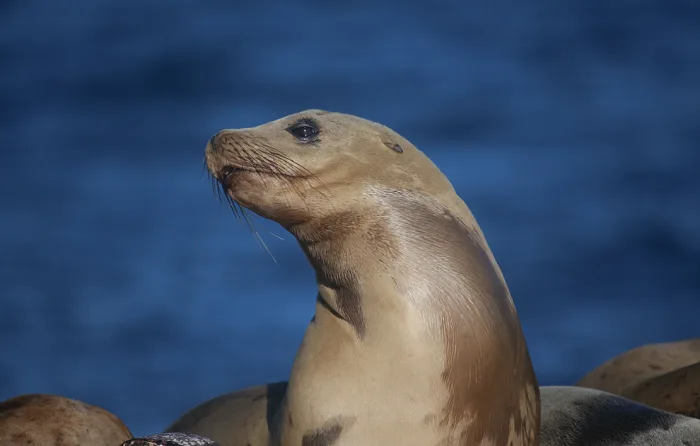
The battle between animals and plastics
More than 8 million tonnes of plastic are dumped into the ocean annually, and it's impacting animals in different ways. While sea lions and whales are getting trapped in it, other animals are ingesting it.
A recent video was taken during a rescue by the Vancouver aquarium marine mammal rescue team shows a sea lion near race rocks ecological reserve, tangled in plastic trash.
Each year the team responds to hundreds of calls for trapped or abandoned animals -- but the sad truth is biologists believe that at any given time there could be upwards of 450 sea lions tangled in plastic along the coasts of B.C.
While the sea lion in the video was freed, experts say that isn't always the case.
More than 8 million tonnes of plastic are dumped into the ocean annually, and it's impacting animals in different ways. While sea lions and whales are getting trapped in it, other animals are ingesting it.
But veterinarian Dr. Martin Helena says he is optimistic and believes people in B.C. care enough about these animals to realize that the ocean isn't a personal garbage dump, but rather home to countless species.
A recent video was taken during a rescue by the Vancouver Aquarium Marine Mammal Rescue Centre team shows a sea lion near race rocks ecological reserve, tangled in plastic trash.
Each year the team responds to hundreds of calls for trapped or abandoned animals -- but the sad truth is biologists believe that at any given time there could be upwards of 450 sea lions tangled in plastic along the B.C. coast.
While the sea lion in the video was freed, experts say that isn't always the case.
More than 8 million tonnes of plastic are dumped into the ocean annually, and it's impacting animals in different ways. While sea lions and whales are getting trapped in it, other animals are ingesting it.
But veterinarian Dr. Martin Helena says he is optimistic and believes people in B.C. care enough about these animals to realize that the ocean isn't a personal garbage dump, but rather home to countless species.
THE PLASTIC PROBLEM
While plastic is an integral part of modern society, the "miracle material" has a downside. It's estimated that 1 billion tonnes of plastic have been discarded since the 1950s and research suggests it will take up to 500 years for some forms to biodegrade.
According to the U.S. Environmental Protection Agency, only 8 percent of the total plastic waste generated in 2010 in the U.S. made it to recycling plants.
Here in Canada, an estimated 90 percent of the country's plastic is not properly disposed of.
A paper by the MacArthur Foundation analyzes the current rate of plastic making its way into the world's oceans, and offers a projection for the future.
"The new report acknowledges that while plastics and plastic packaging are an integral part of the global economy and deliver many benefits ... most plastic packaging is used only once," reads a statement on the Ellen MacArthur Foundation's website.
"Given projected growth in consumption, in a business-as-usual scenario, by 2050 oceans are expected to contain more plastics than fish (by weight)."
VIDEO: MICROPLASTICS DETECTED IN EVERY CANADIAN WHALE
Thumbnail image courtesy: NOAA











